Howard Schultz, the CEO of Starbucks, is well known for taking a stand on political issues, from veterans rights to overcoming political gridlock (remember those Come Together cups during the debt ceiling debacle and government shutdown?). Over the last few days, he’s stepped into the tricky terrain of racial issues and police brutality, with an impromptu Open Forum at the Starbucks Support center in Seattle, in which he offered Starbucks employees a chance to sound off about their own experiences with racism and racial issues. On Tuesday, he released the highly emotional video from that meeting to all 135,000 Starbucks employees in the U.S., along with a letter (below) provided exclusively to TIME in which he outlined his concern about the economic and political effects of racism and increasing social polarization in America. “I’ve watched with a heavy heart as tragic events and unrest have unfolded across America, from Ferguson, Missouri to New York City to Oakland, California,” wrote Schultz. “I’m deeply saddened by what I have seen, and all too aware of the ripple effect.”
Indeed, it’s an issue I’ve spoken about in depth with Schultz. As I wrote several days ago, Starbucks is a perfect retail proxy for the American economy, which is increasingly bifurcated, a nation of latte buyers and those who sell the coffee. The minute-by-minute data that Starbucks gets on consumer spending is perhaps the most sensitive indicator of U.S. consumer confidence around, so it was startling to hear from Schultz that coffee sales took a hit during the riots in Ferguson, which is something that concerns him not only from the point of view of the economy and U.S. consumers — whom he calls “fragile” — but from a political stability point of view as well. “I don’t want to go into specifics,” Schultz told me the day after riots in New York City, following the announcement that a grand jury would not indict a police officer in the chokehold-related death of Eric Garner, “but I can tell you that the volatile situation in Ferguson and the situation in New York had an immediate negative effect on consumer behavior across the country.” What’s more, Schultz says he believes there’s a growing despondency amongst the public that government officials simply aren’t up to the task of dealing with these issues, something that will have an effect on business and the economy, even in the midst of a so-called “recovery.”
“I talk to other people who are running national retail companies,” says Schultz. “We’re at the heart of the holiday season, and there are protests going on throughout the country, but aside from that, the American people have a fractured level of trust and confidence in government today. That’s a fact. Over the last year, if you track the bar graph of where that [trust] was a year ago and where it is today, it has continued to go down,” he adds. “So I think every consumer business, no matter who you are or what you do, is fighting against the cloud that is hanging over the American people, about how they’re feeling about the country, how they’re feeling about their future — and all of that is directly linked to their lack of faith and confidence and trust in the leadership in Washington.”
See Thousands Across The Nation Protest Police Brutality
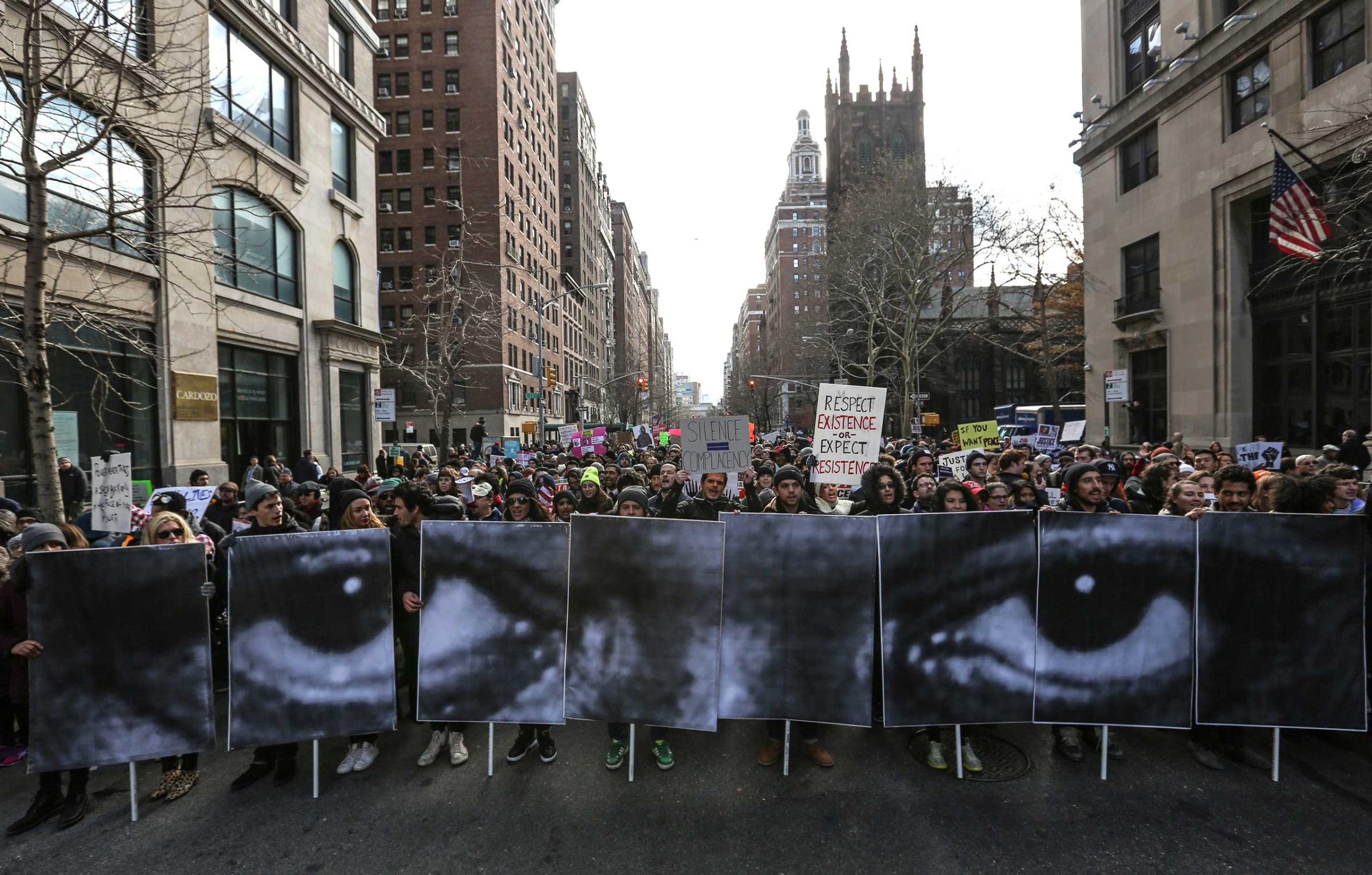
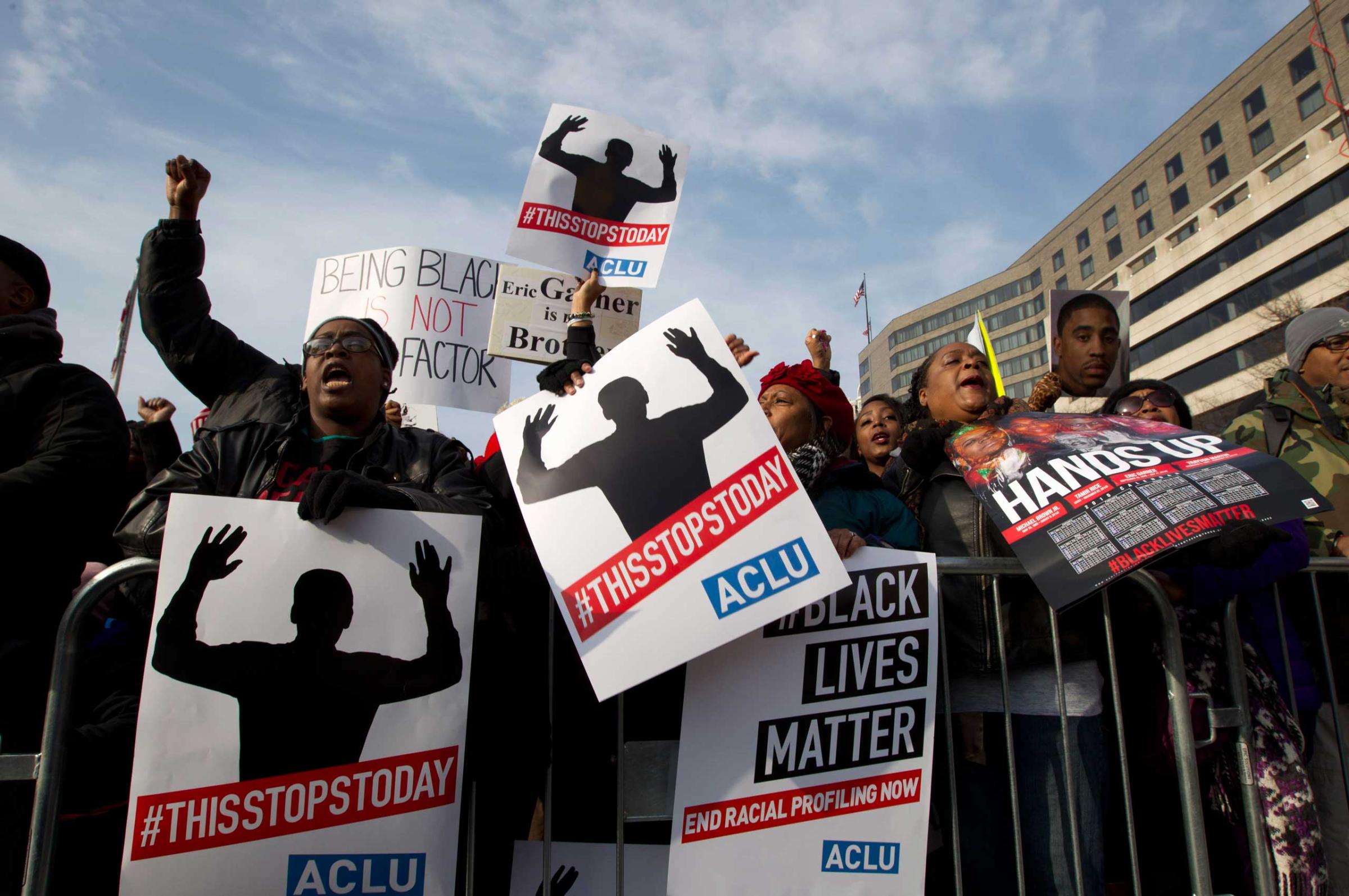
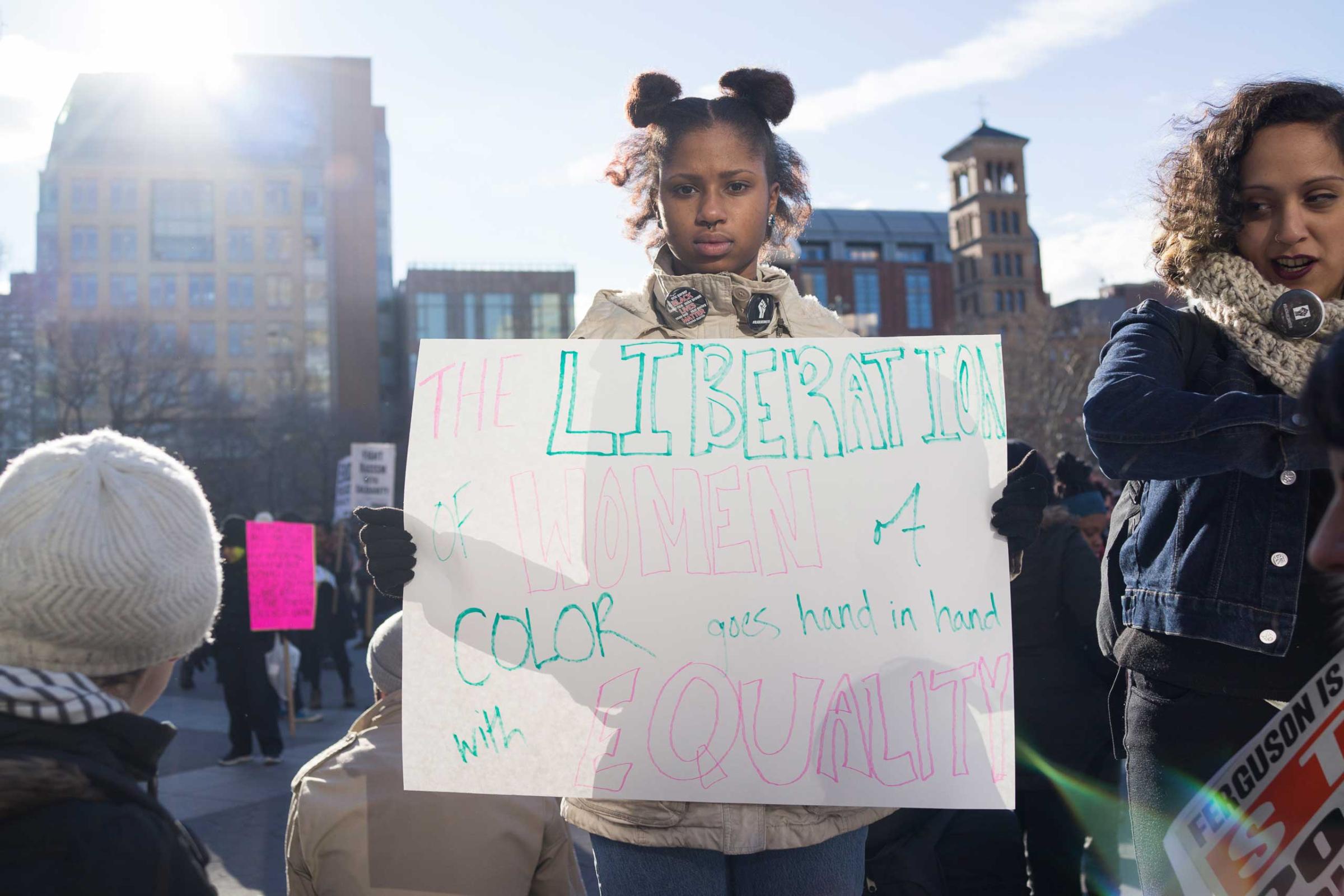
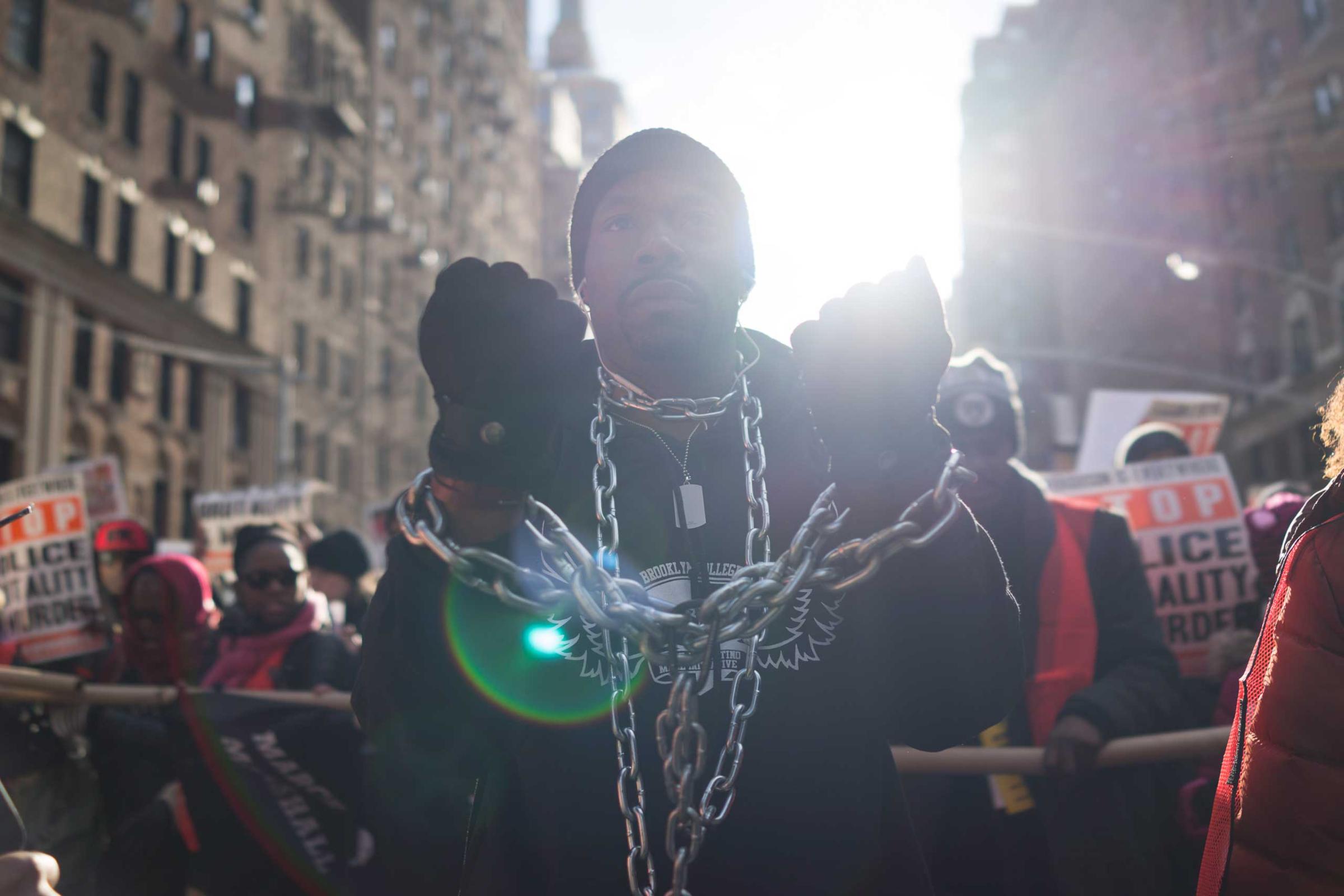
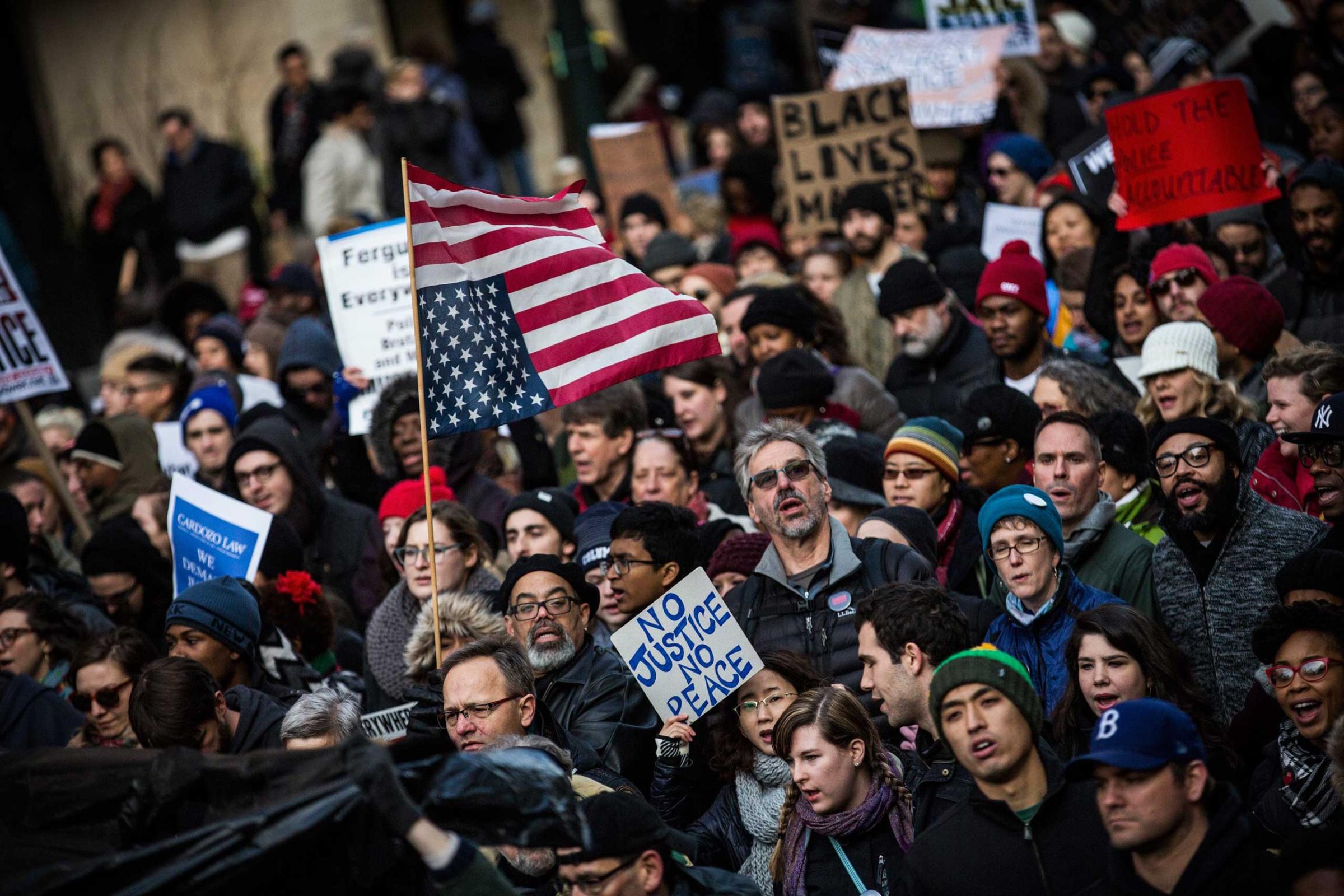
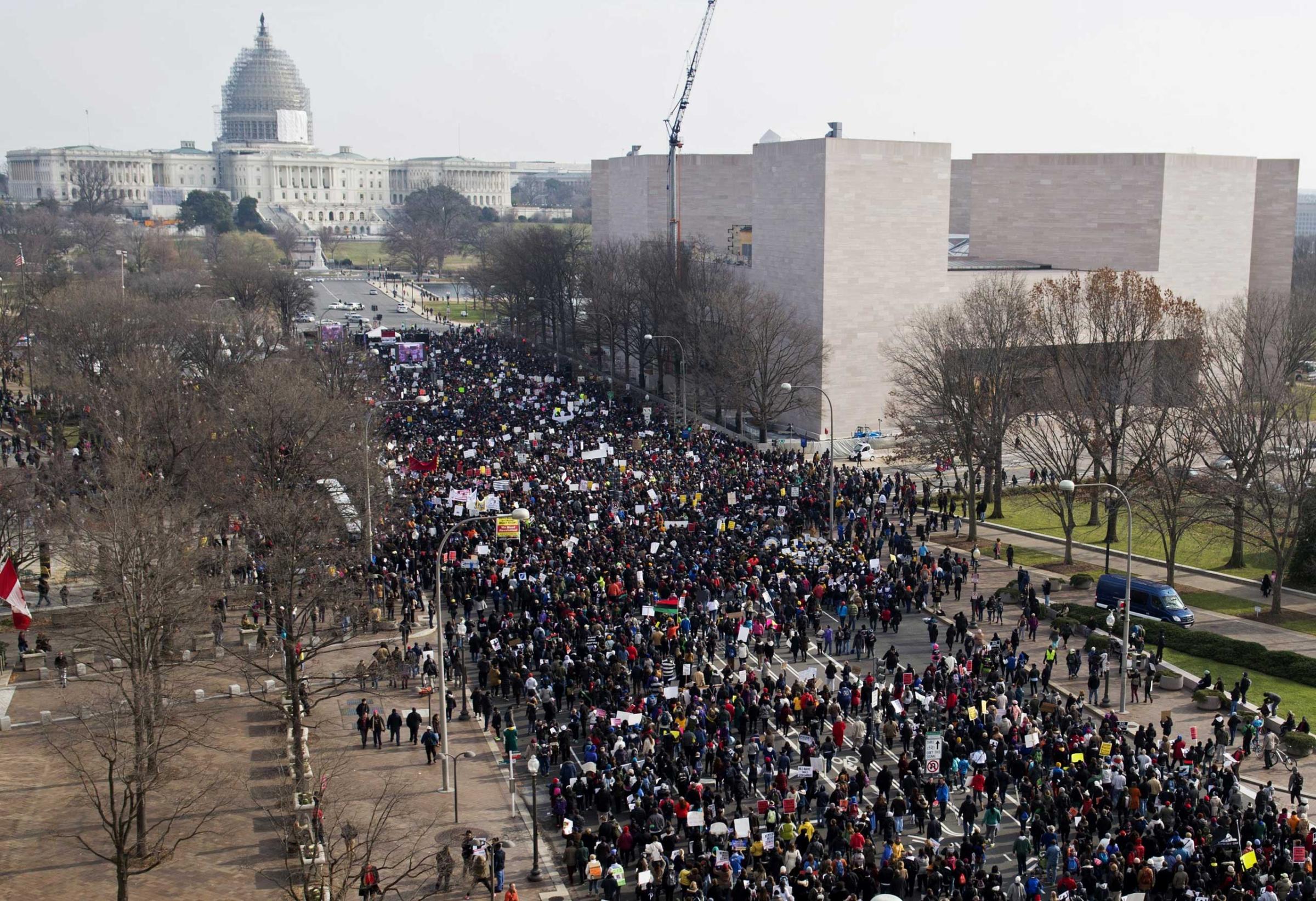
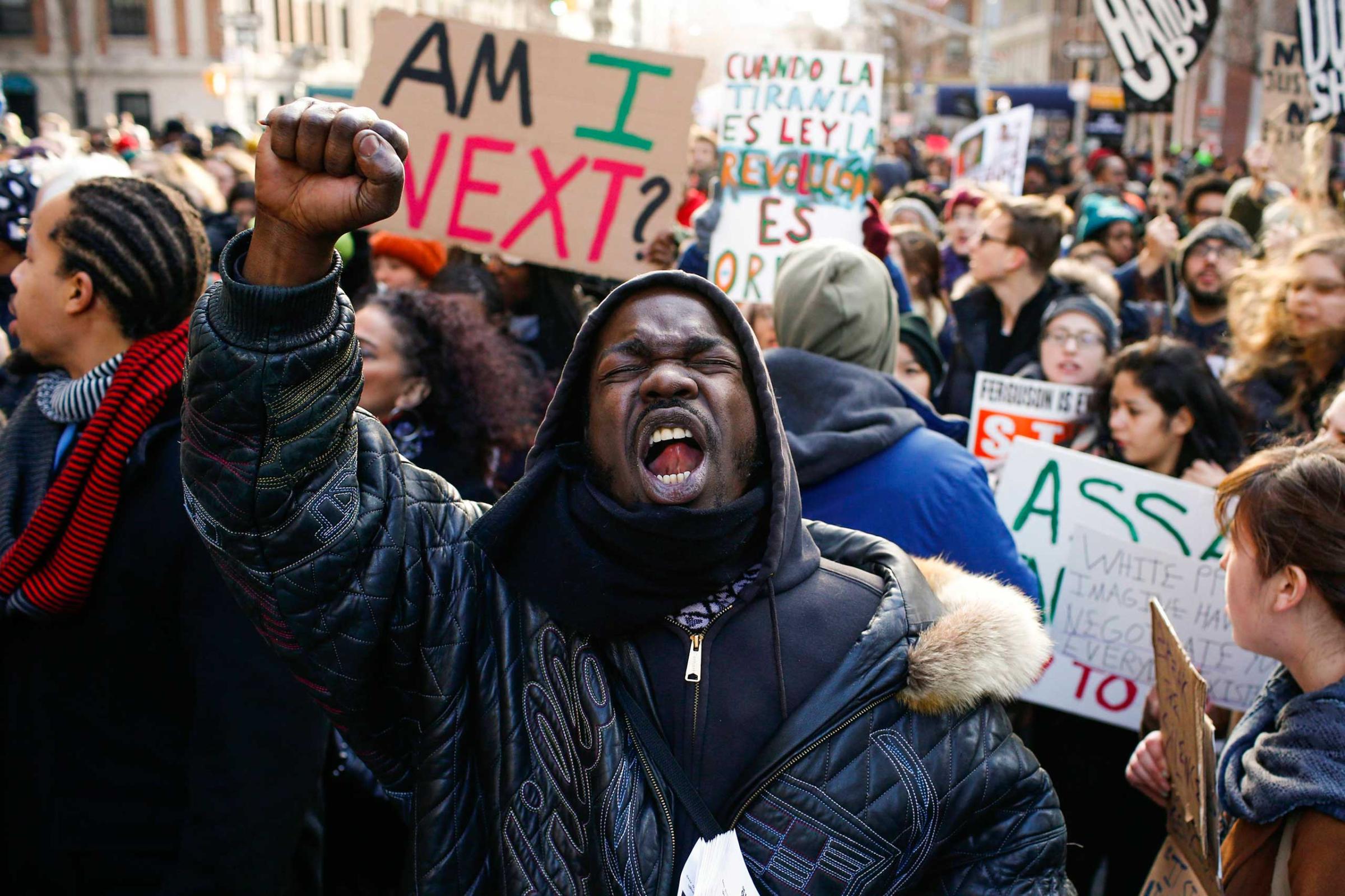
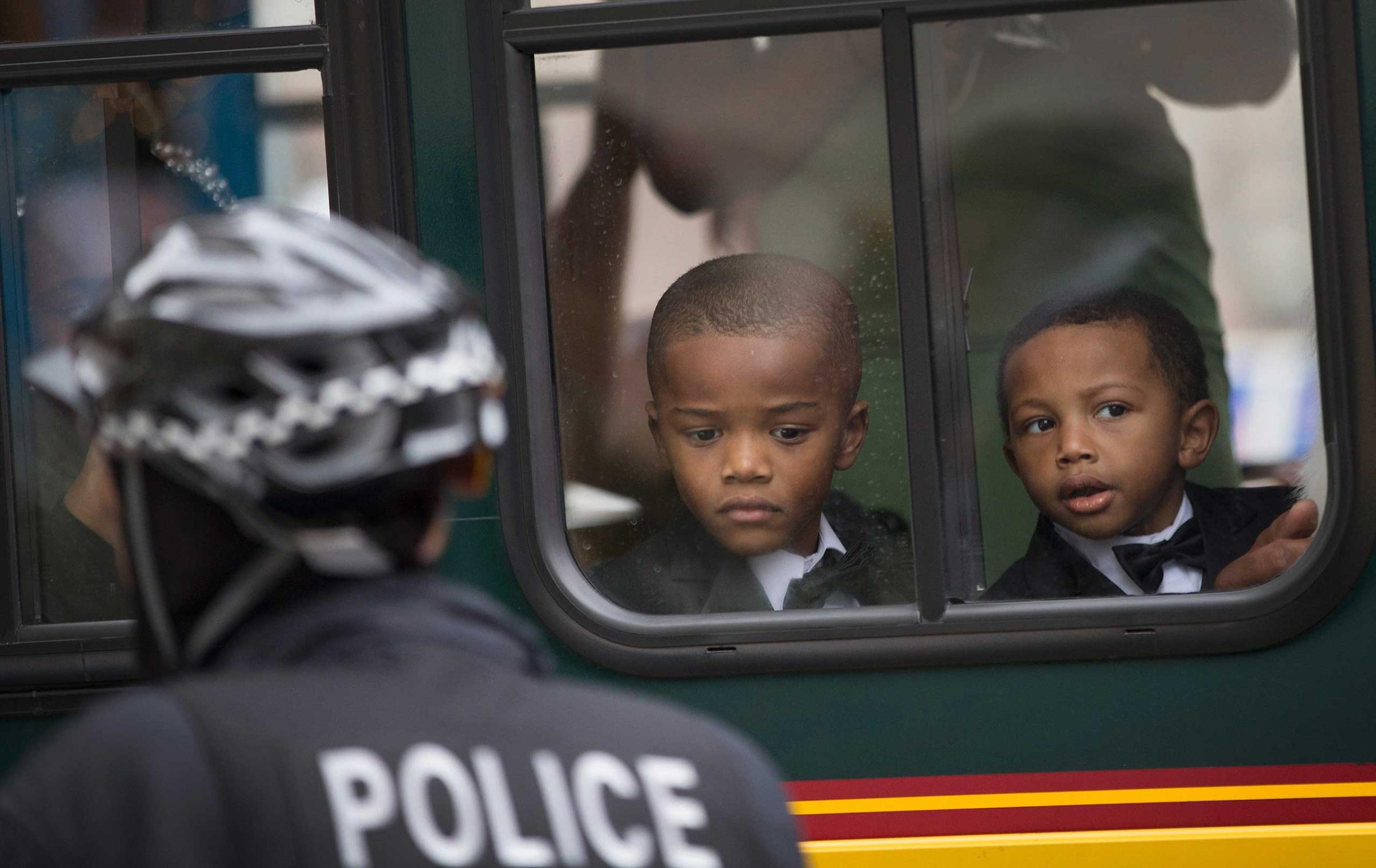
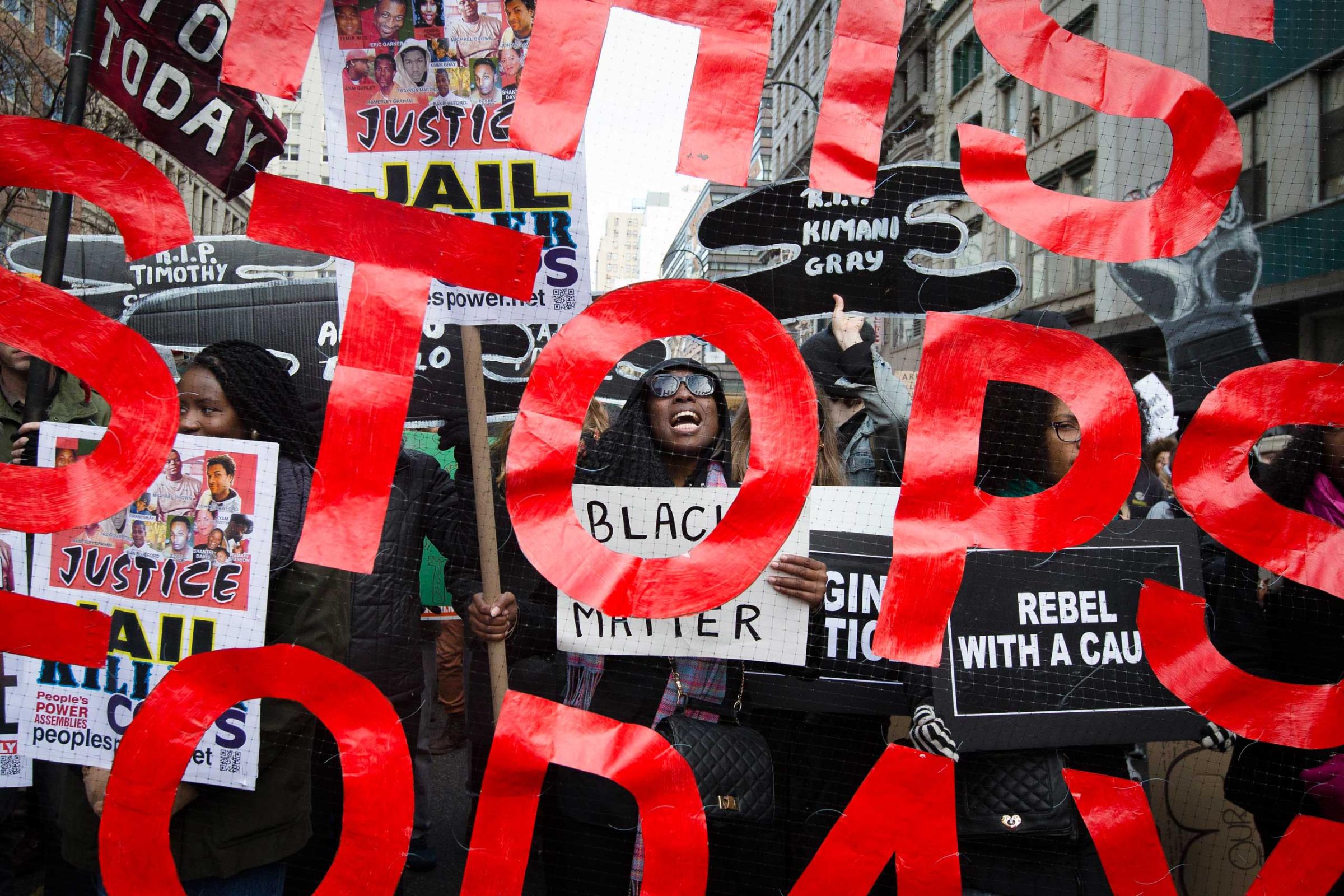
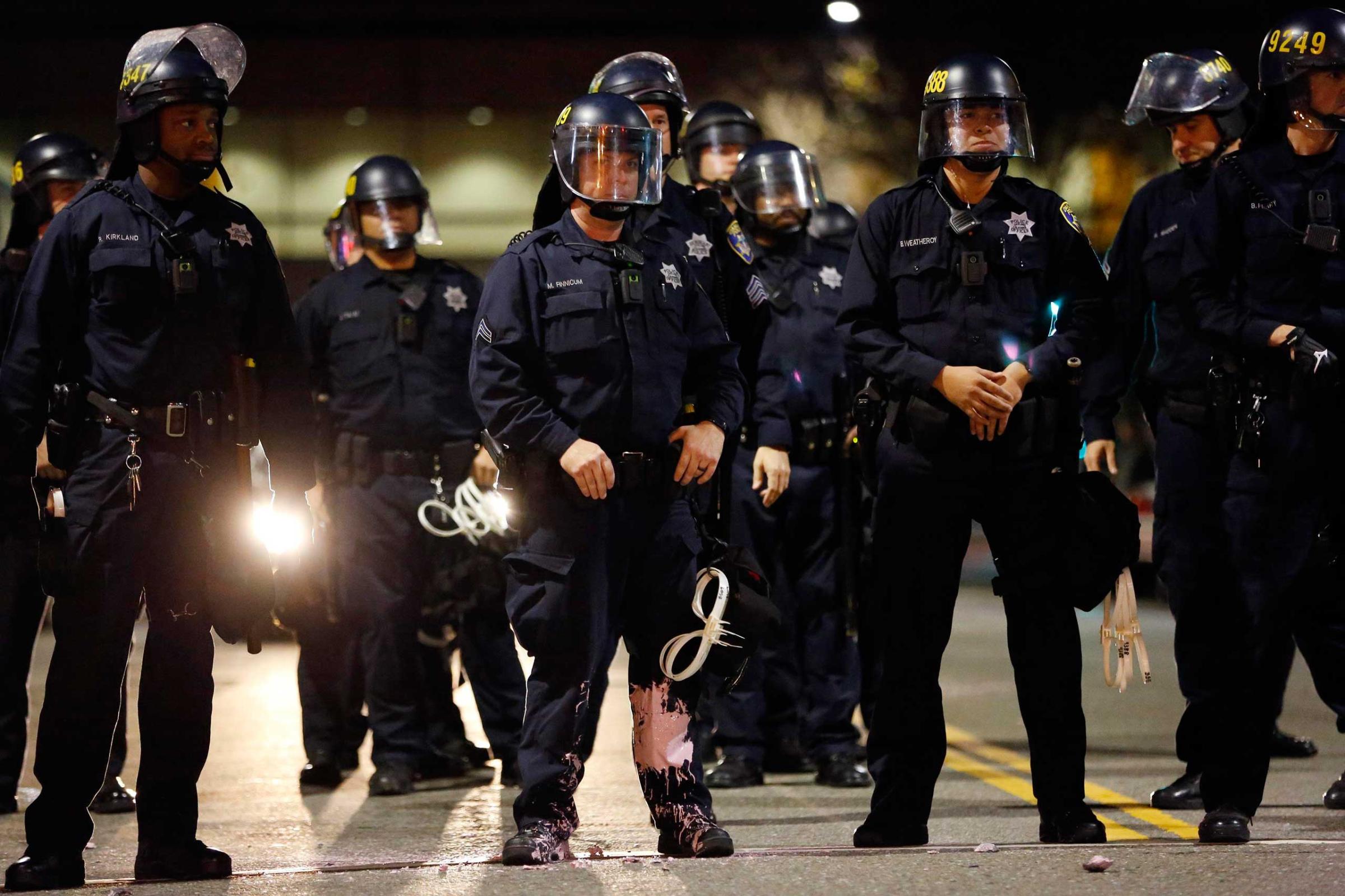
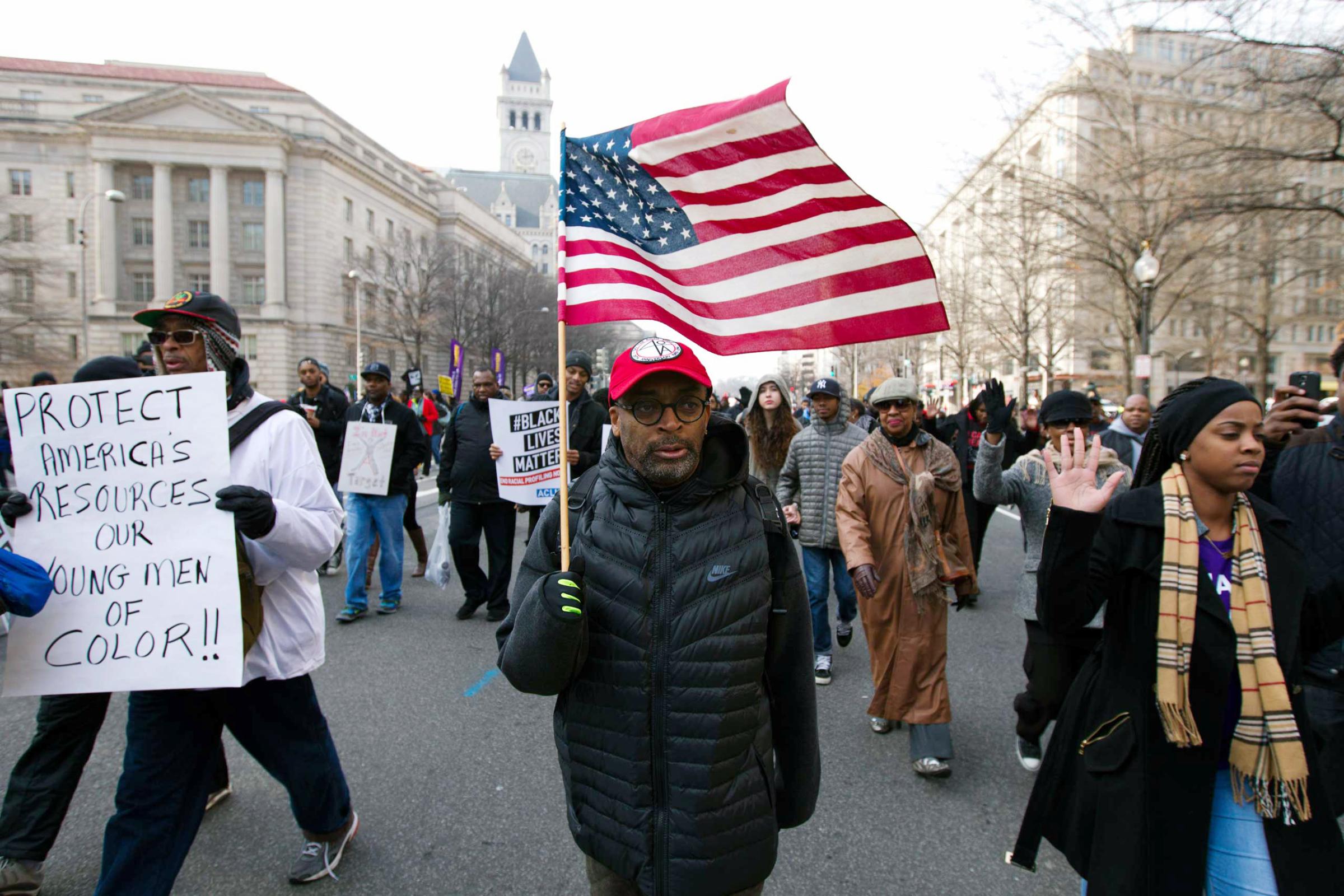
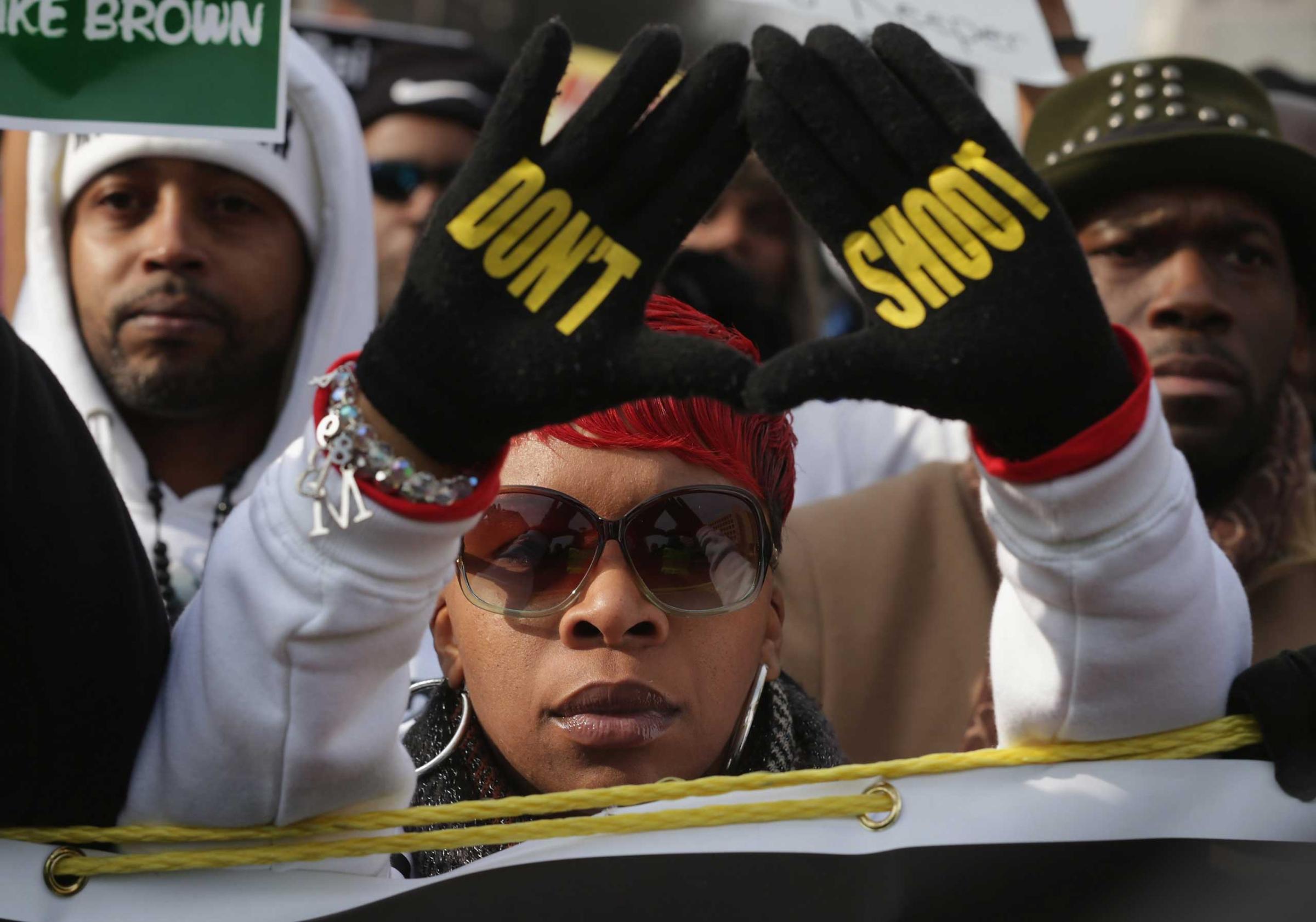
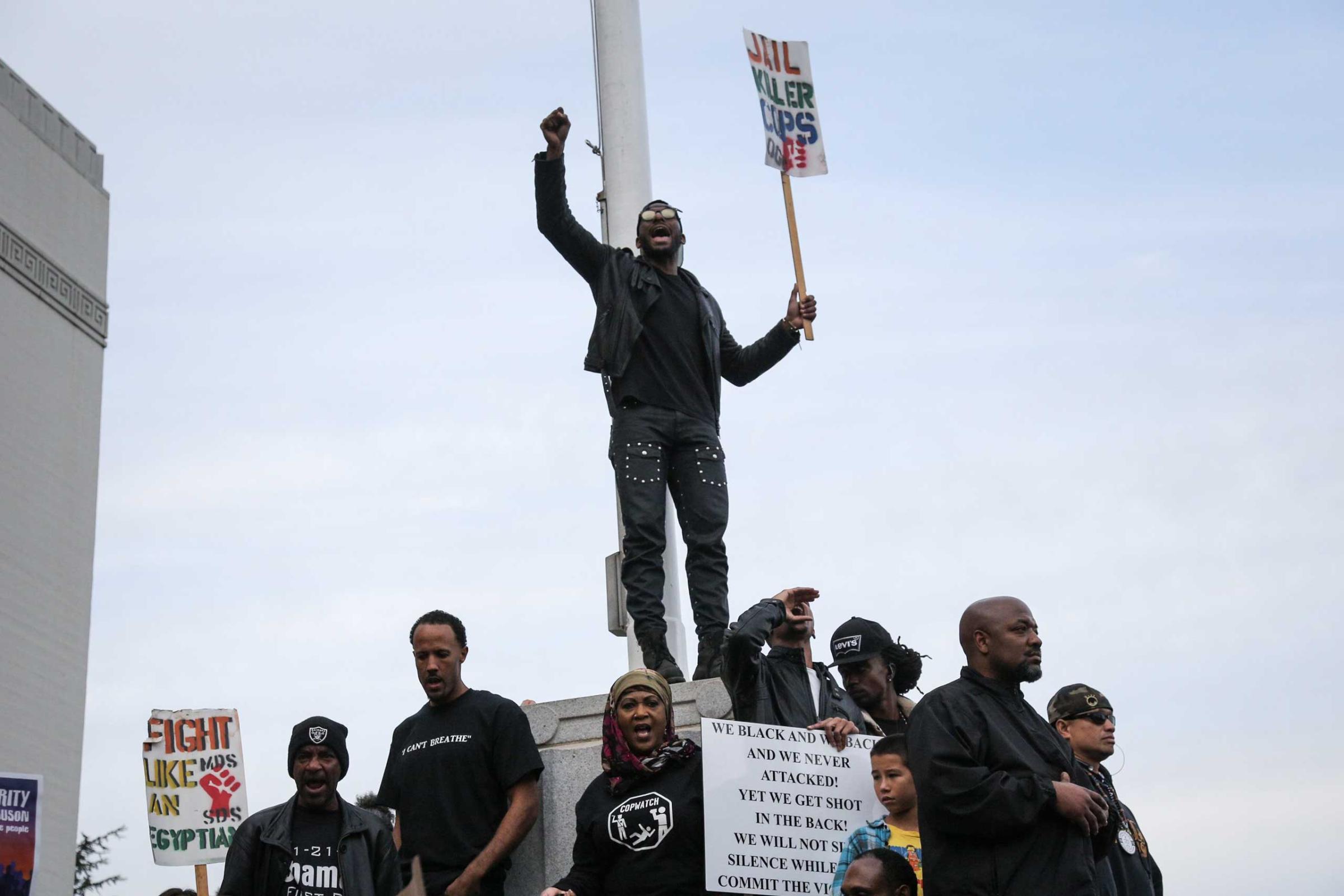
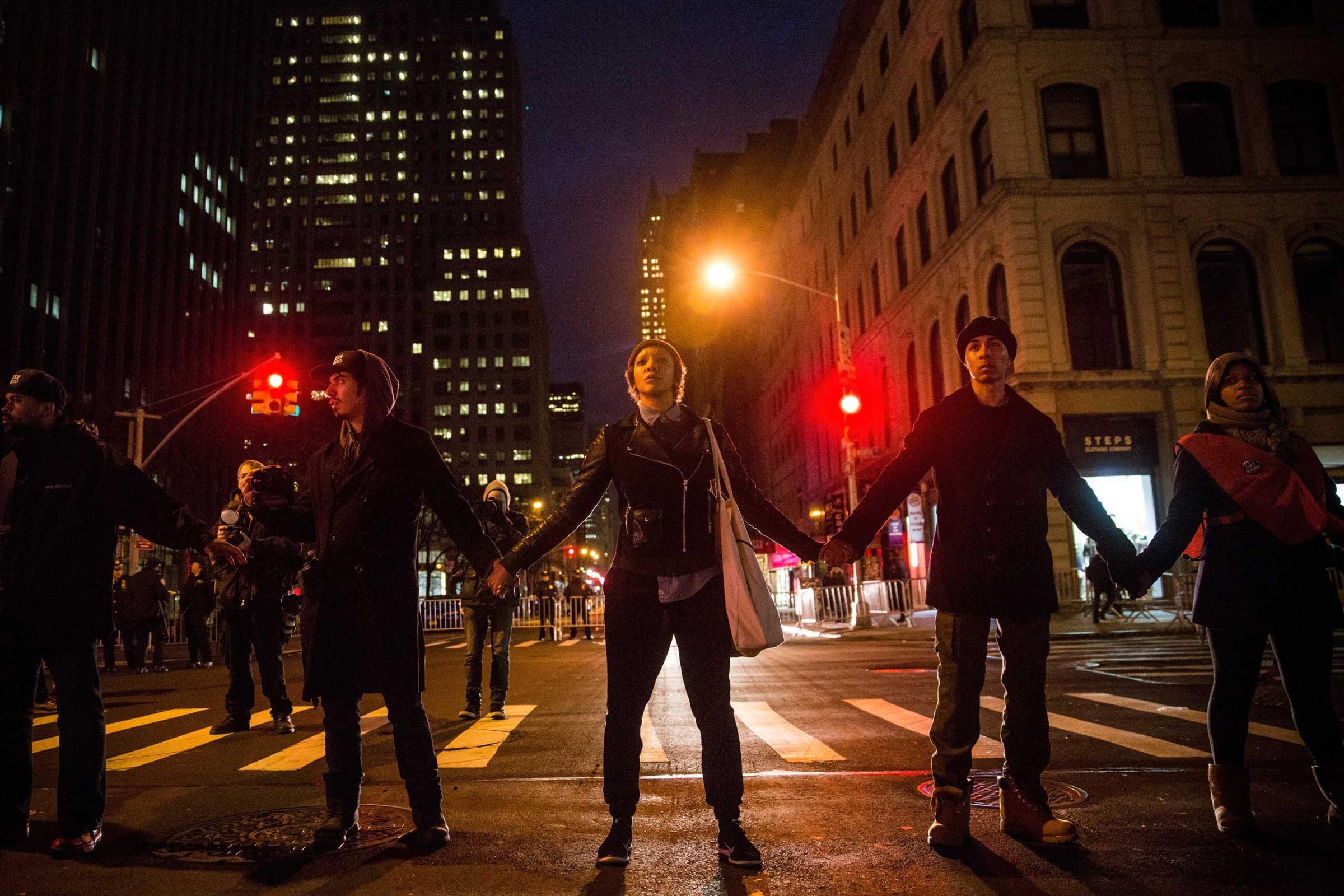
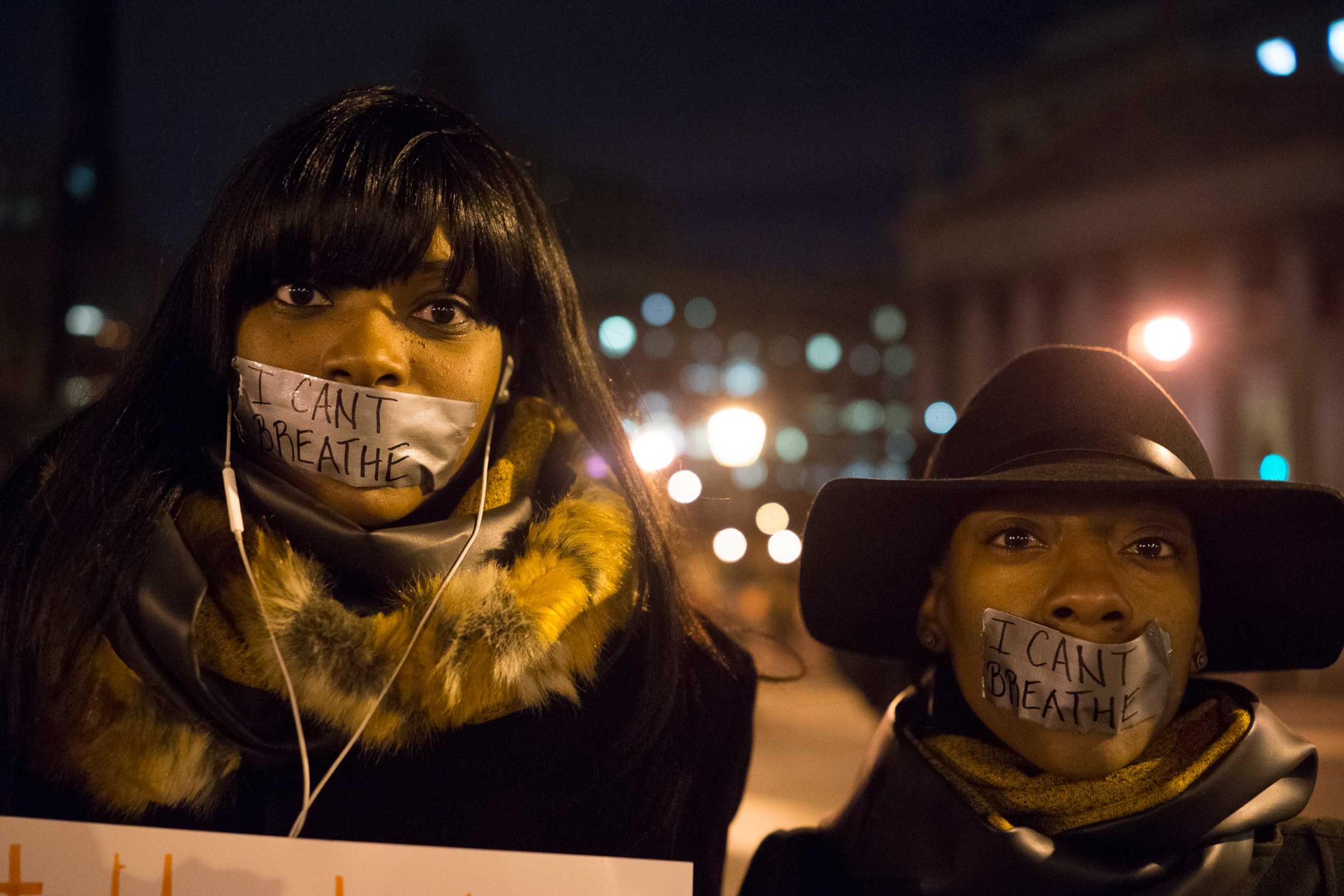
Those sentiments mirror some of the political statements Schultz made during his investor conference in Seattle a few days ago, leading to speculation that he may be considering a push into politics, or even contemplating a run as a third-party candidate (Schultz has stopped giving personal political donations out of disgust with both parties). While sources close to him say he’s considered politics in the past, Schultz tells me he feels he can “do more to effect change where I am right now” and isn’t considering a run at the moment.
That said, he won’t shy away from political discussion, and from sounding off on his own experiences. (Schultz, now a billionaire, grew up in the projects in Brooklyn.) He’s planning more Open Forum meetings in the coming weeks to discuss race issues, and beyond that he also has big plans to do more around veterans hiring, youth employment and student debt issues in the coming months.
“If I feel like I can sincerely attack a problem and make a difference, I’m going to jump in and try and do it. There are clearly such significant and substantive problems that need to be addressed, and this long tail, which has been going on for years, is getting to the point where it’s going to have a systemic effect on — forget the national economy, on the country [as a whole]. The conscience of the country. The ability of the country to continue to succeed at the level it once did,” Schultz says. “I came from a family that lived on the other side of the tracks and the American promise and the American dream was available to me; what I think about and what I’m concerned about is, is that going to be possible for those kinds of young people who grew up on the other side of the road today?” It’s a question that even in the midst of an economic recovery is becoming more and more pressing, for citizens, business people and politicians alike.
The full text of Schultz’s letter is below:
To: Starbucks partners; managing directors for company-operated and joint venture markets
Date: December 16, 2014
Re: Message from Howard: It Starts with Conversation
Dear partners,
Like many of you these past weeks, I have watched with a heavy heart as tragic events and unrest have unfolded across America, from Ferguson, Missouri to New York City to Oakland, California. Personally, I am deeply saddened by what I have seen, and all too aware of the ripple effect.
I have asked myself what it means not to be a bystander, as a citizen and as a Starbucks partner. What are our individual and collective responsibilities to our country, as well as to our own company?
Last week, one thing became clear: we cannot continue to come to work every day aware of the difficult and painful experiences facing our nation, and not acknowledge them, together, as a company. Indeed, despite the raw emotion around the events and their underlying racial issues, we at Starbucks should be willing to talk about them internally. Not to point fingers or to place blame, and not because we have answers, but because staying silent is not who we are.
On Wednesday, December 10, the morning after the protests in Berkeley, California, I called an impromptu Open Forum at our Starbucks Support Center in Seattle. The meeting was strictly internal, solely for Starbucks partners. There was no planning and I did not announce the meeting’s topic. All I knew was that we needed to come together, in a safe space, and have a conversation about what was happening in our nation.
For an hour a microphone was passed from partner to partner. People spoke with grace and emotion. Many shared personal experiences going as far back as childhood, and offered ideas about how to move the conversation, our company and our country forward. People spoke with such conviction and vulnerability. Everyone demonstrated compassion and personal courage. The Forum was at times uncomfortable, yet overall it was enlightening. It provided many of us, myself included, with a deeper understanding around issues of race and the realities facing our country.
What struck me most was how open our partners were to one another. Despite differences in life experiences, people showed civility and respect for the subject matter as well as for each other. I was not surprised, but I was incredibly proud. Wednesday’s Open Forum was the most powerful I’d ever attended in the 25 years that Starbucks has been holding them for our partners around the world. As you watch the video from that Open Forum, you too may agree.
The dialogue did not end once we returned to our work. In an unprecedented outpouring of emails, in our hallways, in my office, in our partner networks, many of you shared more thoughts. Most significantly, you expressed gratitude for having the opportunity to share, to listen and to learn. That sentiment alone made it clear to me that Starbucks could continue to do something we’ve always done: foster community and conversation.
That is why the Leadership Team and I have decided to expand opportunities for civil discourse within Starbucks, among our partner communities. We plan to host internal-only Open Forums around America and will begin in January in Oakland, St. Louis and New York City. Details about these events will be shared in the coming days.
I’ve always believed that core to our success has been our commitment to achieve the balance between our social conscience and responsible commerce. This is one of those times. Starbucks is far from perfect, and we do not claim to have solutions to our country’s complicated social issues. However, doing what is right for society and doing what is right for business cannot be mutually exclusive endeavors. While it is always safer to stand on the sidelines, that is not leadership. Today more than ever companies such as Starbucks must use their platforms and resources to create opportunities for their people, as well as for the communities they serve.
So today, we choose to act in a way that is authentic to us, by nurturing a sense of community and bringing people together through the lens of humanity. At this trying time, it is important for all of us to be open and to be present.
Onward,
Howard
Read next: Inside Starbucks’ Radical New Plan for Luxury Lattes
More Must-Reads from TIME
- Caitlin Clark Is TIME's 2024 Athlete of the Year
- Where Trump 2.0 Will Differ From 1.0
- Is Intermittent Fasting Good or Bad for You?
- The 100 Must-Read Books of 2024
- Column: If Optimism Feels Ridiculous Now, Try Hope
- The Future of Climate Action Is Trade Policy
- FX’s Say Nothing Is the Must-Watch Political Thriller of 2024
- Merle Bombardieri Is Helping People Make the Baby Decision
Contact us at letters@time.com